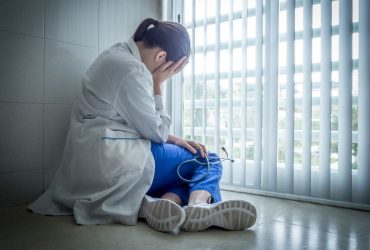Physicians overall have higher odds of depressed mood and mental health, job, and legal problems preceding suicide
25.6 percent of providers reported mental distress severe enough to meet diagnostic criteria for psychopathology
Interruptive clinical decision support with an on-screen pop-up led to significantly more decisions to screen
Poor control over patient load, team composition, clinical schedule, and workload independently linked to burnout
Spreading misinformation to the community is least common reason for medical board discipline of physicians
In recent study, suicide rate ratio was also significantly elevated for male physicians versus other professionals
Odds of initiation and engagement were significantly higher following discharge from public hospital
Increased likelihood seen for female physicians, older physicians, and trainees, and for emergency department doctors<
61.4 percent do not know primary care providers can prescribe medication for opioid use disorder
However, they are not more likely to experience emotional exhaustion










